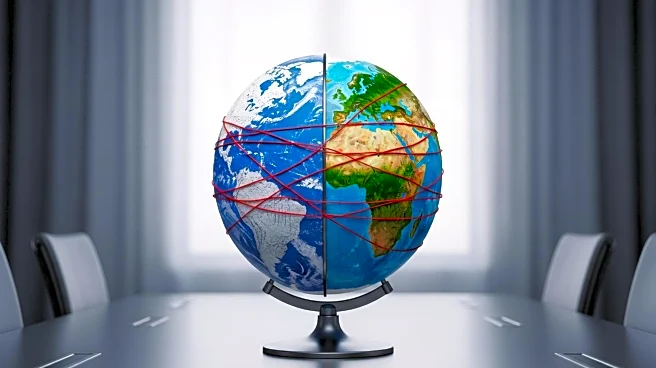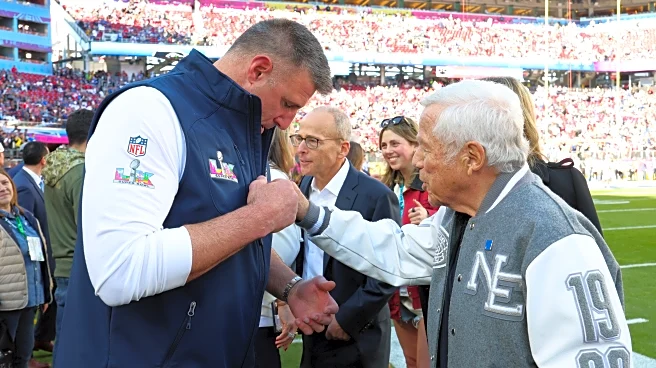What's Happening?
U.S. special envoy Steve Witkoff reportedly misunderstood a land swap offer from Russian President Vladimir Putin during a meeting on August 6, 2025. Witkoff initially informed President Trump that Russia was willing to withdraw from Kherson and Zaporizhzhia oblasts in exchange for Ukraine ceding Donetsk and Luhansk. This proposal startled European leaders, who had different expectations of Putin's intentions. Witkoff later reversed his stance, clarifying that Putin was not offering to withdraw from the territories. Witkoff's lack of diplomatic experience and absence of a State Department notetaker at the meeting contributed to the confusion. The misunderstanding has raised concerns about Trump's approach to foreign policy and its impact on U.S.-European relations.
Why It's Important?
The diplomatic confusion underscores the challenges of negotiating peace in Ukraine and the risks associated with relying on inexperienced envoys. Witkoff's misunderstanding has alarmed European leaders, who fear that Trump's lenient policy towards Russia could force Ukraine into unfavorable concessions. The incident highlights the importance of clear communication and experienced diplomatic channels in international negotiations. The ongoing conflict in Ukraine continues to affect global security and economic stability, with potential repercussions for U.S. foreign policy and its alliances. The situation calls for careful diplomatic strategies to prevent further escalation and achieve lasting peace.
What's Next?
President Trump has set a ceasefire as the target for future negotiations, but Russia's maximalist demands remain a significant obstacle. Trump is expected to meet with Ukrainian President Zelenskiy in Washington, with European leaders considering joining the meeting to ensure a coordinated approach. The focus will be on drafting security guarantees for Ukraine and exploring diplomatic solutions to end the conflict. However, Russia's rejection of foreign troops in Ukraine and its demands for territorial control pose challenges to achieving a peace agreement. The U.S. administration may need to reassess its diplomatic strategies and strengthen alliances to address the ongoing crisis.










